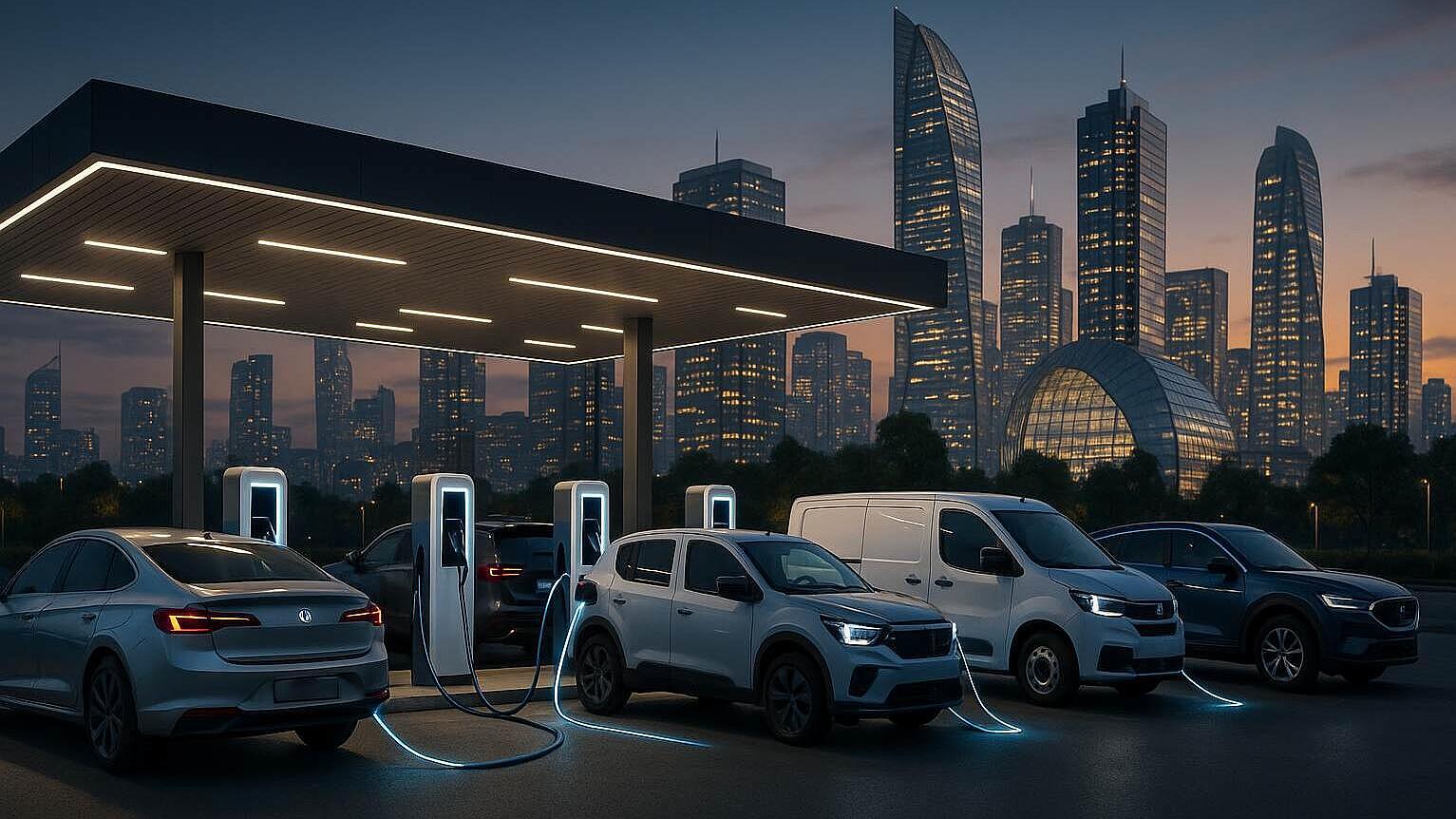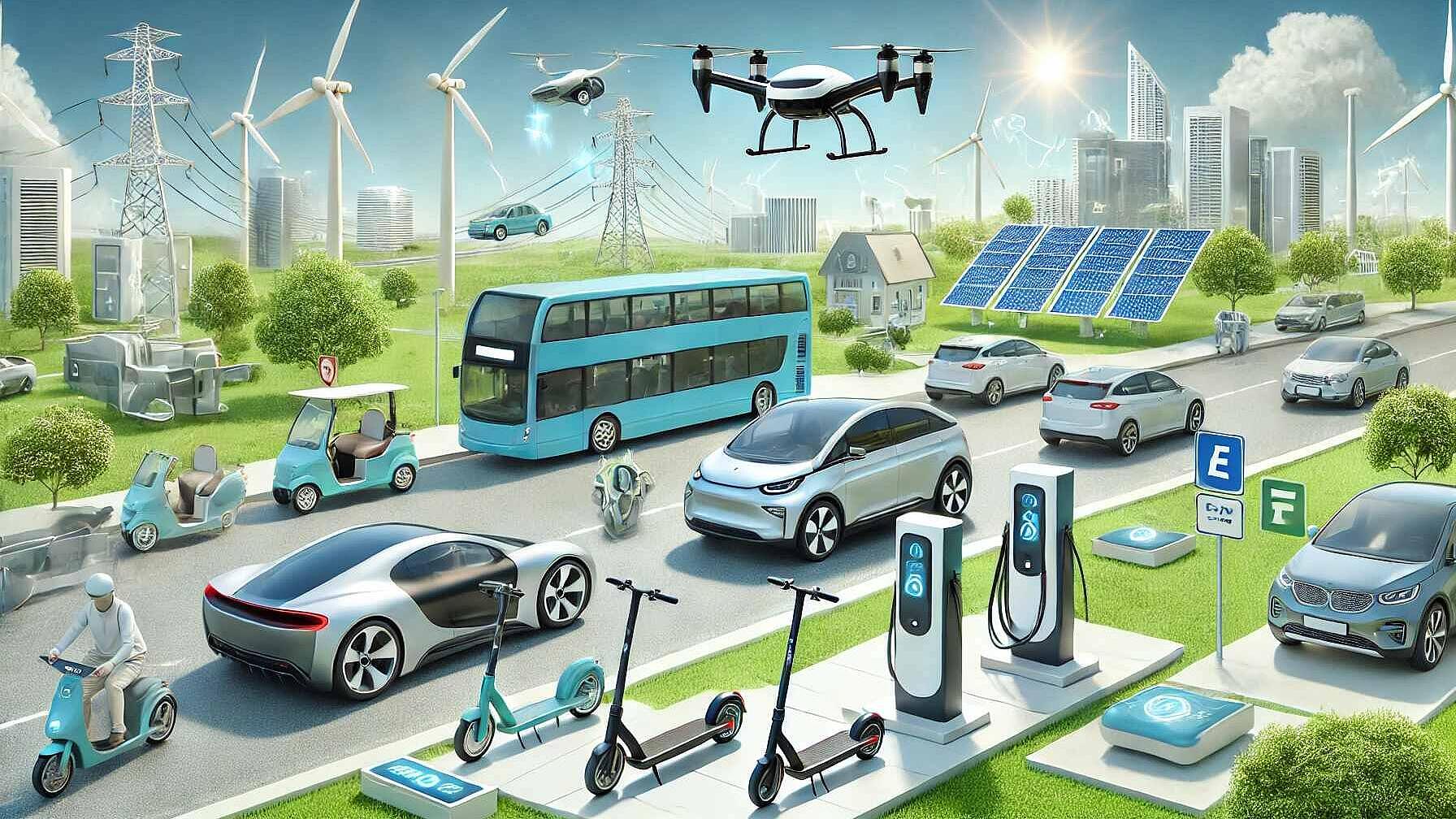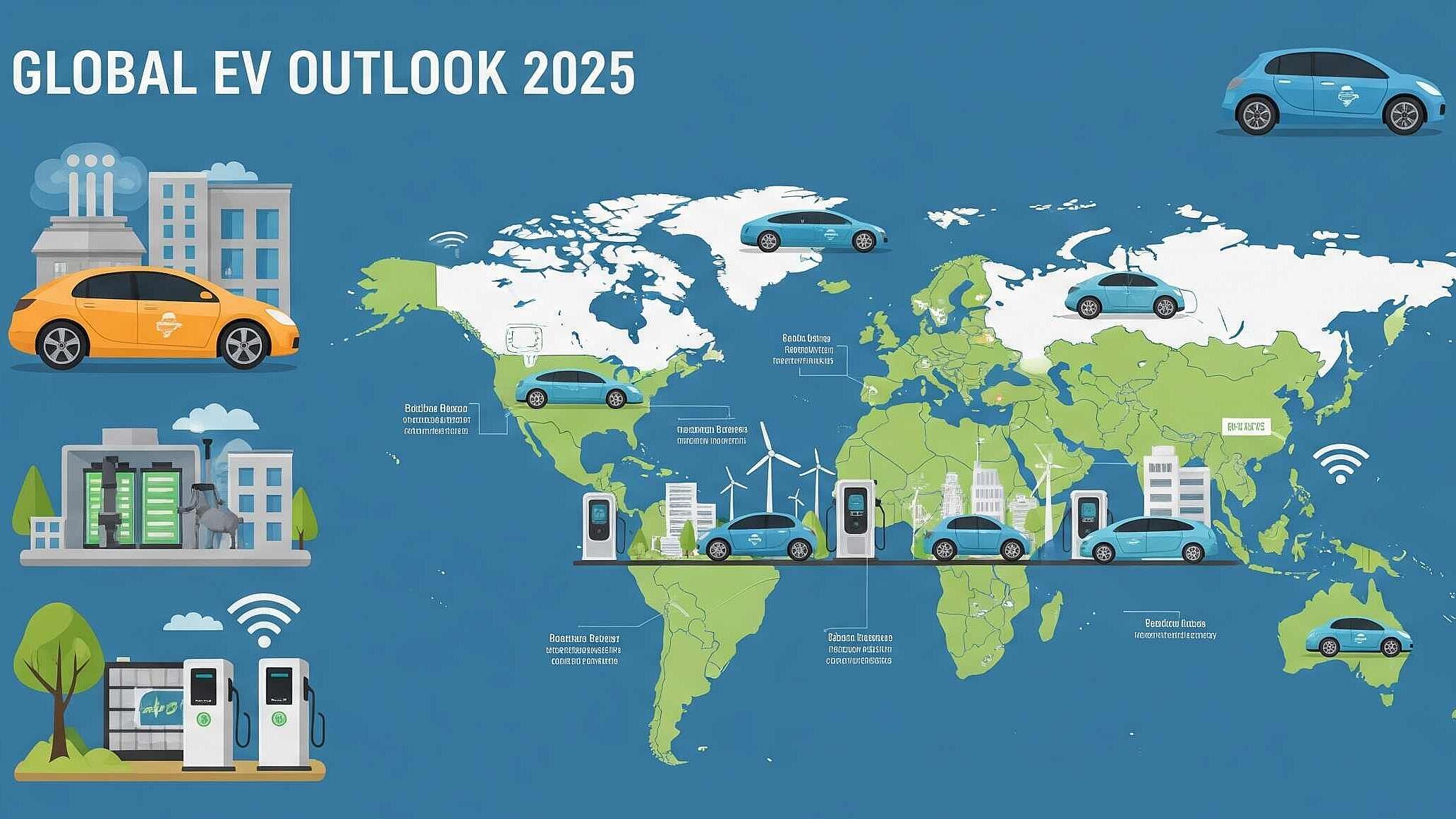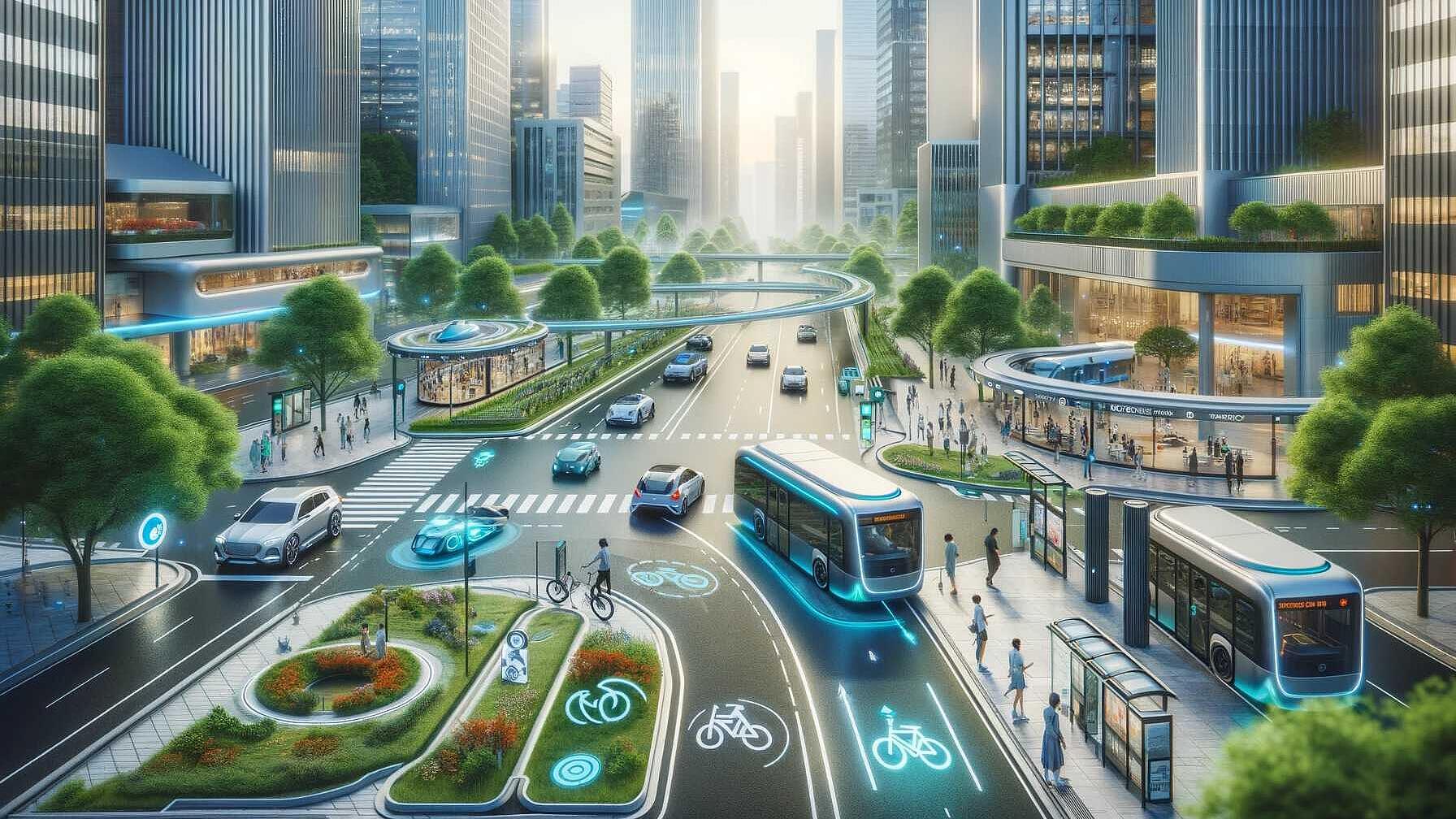 Renewable Energy
Renewable EnergyCharging Ahead: How Electric Vehicles Are Powering a Sustainable Future for the Next Generation of Innovators
Summary
The paper discusses the significant growth in the adoption of electric vehicles (EVs), fueled by technological innovation, environmental concerns, and supportive government policies. In 2024, EVs are expected to represent one in five cars sold globally, with China, Europe, and North America leading the market expansion. The cost of EV batteries has decreased substantially, enhancing the accessibility of EVs. Challenges such as charging infrastructure, particularly in less urban areas, and consumer range anxiety persist.
Technological advancements are at the forefront of the EV revolution, with developments in battery technology like solid-state batteries promising longer ranges and faster charging times. The EV ecosystem is becoming smarter with ultra-fast charging stations and Vehicle-to-Grid technology, which enables energy feedback into the grid. AI and IoT are improving the functionality and user experience with predictive maintenance and optimized charging strategies.
The paper emphasizes that the shift to EVs is crucial in combating climate change by reducing greenhouse gas emissions from the transportation sector. The adaptation is transforming industries, forcing changes in supply chains, and creating new employment opportunities. The broader impacts include potential societal benefits such as quieter cities and reduced health costs from improved air quality.
Finally, the paper calls on young professionals and students to engage with the electric mobility sector, highlighting the potential for careers that contribute to sustainability, technological innovation, and the creation of equitable transportation solutions. The electric revolution represents a substantial shift in our energy infrastructure and urban planning, requiring a new wave of innovation and leadership.
Open full article
Charging Ahead: How Electric Vehicles Are Powering a Sustainable Future for the Next Generation of Innovators
The hum of an electric motor, once a novelty, is rapidly becoming the soundtrack of our urban landscapes. Not long ago, the idea of electric vehicles (EVs) dominating our roads felt like a distant dream. Yet, here we are, witnessing a revolution on wheels, a seismic shift in how we move, powered by innovation, ambition, and an urgent need for a cleaner planet. Imagine telling someone a decade ago that millions would be plugging in their cars like they do their smartphones – the pace of change has been nothing short of electrifying.
The Electric Surge: A New Era of Mobility
The global appetite for electric mobility has surged dramatically. In 2024 alone, EV sales continued their upward trajectory, with projections indicating that one in every five cars sold globally this year will be electric. This isn't a gentle incline; it's a steep ascent. Countries across the globe are setting ambitious targets, phasing out internal combustion engine (ICE) vehicles, and pouring investments into supporting infrastructure. We're seeing markets like China, Europe, and North America leading the charge, but the wave is expanding, touching shores in Southeast Asia, Latin America, and beyond. This isn't just about passenger cars anymore; electric buses are becoming commonplace in many cities, and the electrification of commercial vans and even long-haul trucks is gaining serious momentum. Key to this acceleration has been a potent combination of falling battery costs – the heart of any EV – which have plummeted by nearly 90% over the past decade, alongside proactive government policies. Subsidies, tax breaks, and stringent emissions standards have created a fertile ground for EV adoption. However, the journey isn't without its bumps. While charging stations are proliferating, ensuring ubiquitous, fast, and reliable charging access, especially in rural areas and apartment complexes, remains a significant undertaking. The ghost of ‘range anxiety,’ though diminishing with newer models boasting impressive ranges, still lingers in the minds of some consumers.
Driving the Future: Breakthroughs and Beyond
The true excitement, however, lies in the continuous stream of innovation transforming the EV landscape. We are on the cusp of a new era in battery technology. Researchers and companies are pushing the boundaries with next-generation solutions like solid-state batteries, which promise even higher energy densities, meaning longer ranges, significantly faster charging times – imagine adding 200 miles of range in the time it takes to grab a coffee – and enhanced safety. Beyond the battery itself, the ecosystem around EVs is becoming smarter and more integrated. Consider the advent of ultra-fast charging (UFC) stations capable of delivering power at 350kW or more, drastically reducing charging times. Then there's Vehicle-to-Grid (V2G) technology, a game-changer that allows EVs to not only draw power from the grid but also feed it back. This transforms parked cars into a distributed energy resource, helping to stabilize the grid during peak demand or when renewable energy sources like solar and wind are intermittent. This synergy between mobility and energy sectors opens up a wealth of opportunities. Artificial intelligence and the Internet of Things (IoT) are also playing a crucial role, enabling smart charging solutions that optimize charging times based on electricity prices and grid load, providing predictive maintenance alerts, and enhancing the overall user experience through connected car features. As young professionals in fields like energy, IT, and engineering, the opportunities to contribute to these cutting-edge developments are immense. The industry is also keenly focused on sustainability beyond the tailpipe. Significant research is going into developing more sustainable battery chemistries, reducing reliance on ethically challenging materials, and establishing robust, efficient battery recycling processes to create a truly circular economy for EV components.
Transforming Tomorrow: The Broader Impact of EVs
The ripple effects of this electric transformation will extend far beyond cleaner air in our cities, though that itself is a monumental benefit. The shift to EVs is a core pillar in the global strategy to combat climate change, with the potential to drastically cut greenhouse gas emissions from the transportation sector, which currently accounts for a significant portion of global CO2 output. This transition will redefine the automotive industry, a sector that has been a cornerstone of global manufacturing for over a century. Supply chains are being reconfigured, with new emphasis on battery production, software development, and advanced electronics. This creates both challenges for established players and vast opportunities for agile newcomers. Energy systems will also undergo a profound transformation. The increased demand for electricity will necessitate significant investments in grid modernization, renewable energy generation, and smart grid technologies to manage new load patterns effectively. Furthermore, a new economy is being built around electric mobility, generating millions of skilled jobs in manufacturing, software development, charging infrastructure installation and maintenance, and battery recycling. From a societal perspective, the rise of EVs can lead to quieter cities, reduced healthcare costs associated with air pollution, and potentially new models of vehicle ownership and usage, especially when combined with autonomous driving technologies.
Your Role in the Electric Revolution
The road ahead is charged with potential. The transition to electric mobility isn't just an environmental imperative; it's an economic and technological frontier brimming with possibilities. For students and young professionals looking to make a tangible impact, the EV sector offers a dynamic and rewarding career path. Whether your passion lies in designing the next breakthrough battery, developing sophisticated software for smart charging networks, shaping policies that accelerate adoption, or financing the infrastructure of tomorrow, your skills are urgently needed. This is more than just a change in how we power our vehicles; it's a fundamental reshaping of our energy systems, urban environments, and industrial landscapes. The question isn't if electric mobility will define the future, but rather, what role will you play in driving this exhilarating transformation forward? How will your expertise help ensure this transition is equitable, sustainable, and benefits all of society?
The journey towards an all-electric transportation future is well underway, propelled by a convergence of technological breakthroughs, supportive government policies, and a growing public desire for cleaner, more sustainable options. While challenges remain in areas like widespread charging infrastructure and ethical sourcing of battery materials, the momentum is undeniable. The advancements in battery technology, smart charging solutions, and the integration of EVs into broader energy systems are not just incremental improvements; they are transformative shifts. The coming years will be pivotal, offering a unique chance to build a transportation ecosystem that is not only environmentally sound but also economically vibrant and socially equitable. The electric revolution is here, and it's calling for a new generation of innovators to steer it towards a brighter tomorrow.
Source: IEA Global EV outlook 2025



